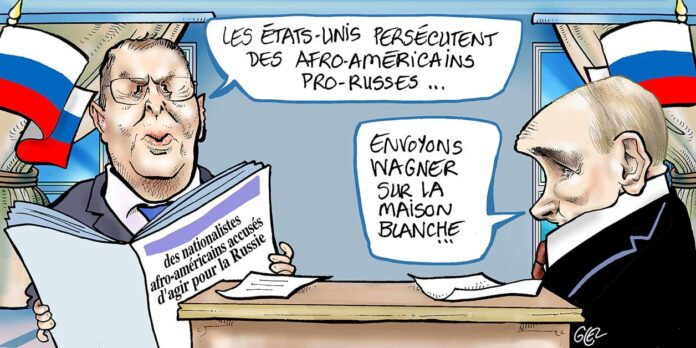Is the search for African support for current Russian policy a multi-cushion billiards game? Direct and significant, it was clear that Vladimir Putin's Russia has been attacking Africa in recent months. Is she also trying to rally the self-proclaimed “African people” of the United States?
This is clearly what the US Department of Justice thinks, which on April 18 appointed the founder and three members of the African People's Socialist Party (APSP), an African-American nationalist group, entities close to the black movement of the Black Panthers and also at the origin of the Uhuru Movement, which presented candidates for local elections. Sign of destiny? The party was created in Saint Petersburg, an American city in Pinellas County.
First Amendment
Omali Yeshitela, Penny Joanne Hess, Jesse Nevel and Augustus Romain are suspected of being or were paid agents of the current Russian Federation. On an ideological level, the bridgehead of this group of defendants is more direct than the cautious African discourse. Just a year ago, Yeshitela publicly stated that the African People's Socialist Party called for “unity with Russia in its defensive war in Ukraine against the world colonial powers”…
At the judicial level, these are obviously less about geopolitical opinions protected by the first amendment of the American Constitution than about alleged paid destabilization operations. If the defendant Augustus Romain is suspected of having received funds from a certain Alexander Ionov, a Russian citizen who went undercover for the Kremlin, “to promote O interests of Russia in connection with the Russian invasion of Ukraine,” the prosecution's case identifies older activities.
“Conspiracy against Americans”
In 2016, the Russian secret service helped finance a trip to protests organized by the APSP to support a “petition on the crime of genocide against African people in the United States.” Furthermore, the defendants attempted to “corrupt” the American elections, local in 2017 and 2019, in Florida, and national in 2020. This would then be a case of “conspiracy against American interests”, a serious offense that can lead to sentences of up to ten years in prison.
According to comedian Morgan Freeman, the connection between the so-called “African-American” movements and the African continent seems more than theoretical. Committed to issues of racism, the actor considered the term “African-American” to be “insulting”, this April 15th, in “Sunday Times Culture”, with Africa being a continent, unlike the United States. An indirect invitation not to consider Africa as a wagon to be hitched to a supposed locomotive of movements African-American?

